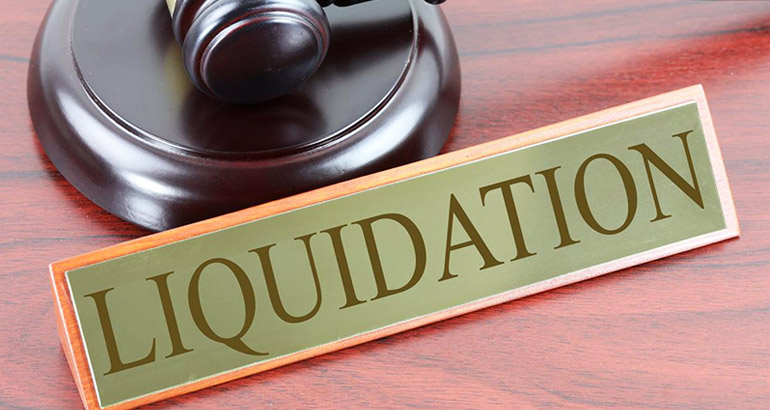Things about Company Liquidation
Things about Company Liquidation
Blog Article
The 7-Second Trick For Company Liquidation
Table of ContentsAn Unbiased View of Company LiquidationFacts About Company Liquidation UncoveredCompany Liquidation - An OverviewWhat Does Company Liquidation Mean?Getting The Company Liquidation To Work
A liquidator is particularly assigned to look after the ending up of a firm's events in order for it to be shut down generally when the business is declaring bankruptcy. The liquidator is a neutral 3rd event that looks after the sale of firm assets in order to pay off any arrearages.Their role includes, however is not restricted to: Objective Overseer: A liquidator is tasked with serving as an impartial third party to oversee the whole business liquidation process. Create Statement of Affairs: Liquidators must develop a thorough declaration of affairs document. This document is dispersed to lenders, outlining the current economic condition of business at the time of its liquidation.
After the liquidation of a firm, its presence is removed from Companies Residence and it stops to be a legal entity. If directors browsed the process without concern, there would certainly be no penalties or individual responsibility for strong financial obligations expected. Currently, with a fresh start, supervisors can check out new organization chances, though expert appointment is suggested.
Not known Factual Statements About Company Liquidation
If even more than 90% of all firm shareholders agree, liquidation can take area on short notice within seven days, the minimal legal notice for financial institutions. However, normally, the larger the liquidation and the even more assets and capital the organization has, the longer the process will take. 'Do I need to pay to liquidate my company?', the answer will depend upon whether or not your organization has any properties remaining when liquidating.

We understand that no two companies are the exact same, which is why we will make the effort to obtain to know your company so we can suggest the most effective strategy for you. We only work in your best rate of interests, so you can be absolutely positive in the service we offer.
Facts About Company Liquidation Revealed
In the UK, there is an established process to closing down or reorganizing a find out here restricted company, whether it is solvent or financially troubled. This procedure is referred to as liquidation and can only be taken care of by an accredited insolvency practitioner (IP) based on the Bankruptcy Act 1986. There are four main kinds of company liquidation procedure: Financial institutions' Voluntary Liquidation (CVL); Obligatory liquidation; Administration; and Participants' Voluntary Liquidation (MVL).

In these conditions, it is essential that the business stops trading; if business remains to trade, the supervisors might be held personally accountable and it might cause the bankruptcy specialist reporting wrongful trading, called misfeasance, which might result in lawful action. The supervisors select an insolvency professional and once this has actually been agreed and validated, there is a meeting with the investors.
The supervisors are no much longer entailed in what happens, including the sale of the company's best site properties. If the directors want any of the assets, they can notify the IP.
The Facts About Company Liquidation Uncovered
The major distinction is that the firm's financial institutions put on the court for a winding up order which forces the financially troubled firm into a liquidation process. Creditors take this action as a last resort since they have not obtained settlement via various other types of negotiation. The court appoints a bankruptcy practitioner, likewise referred to as a main receiver, to conduct the compulsory business liquidation procedure.
This type of firm liquidation is not voluntary and supervisors' conduct is reported to the UK's Secretary of State once the liquidation procedure has been finished. As a result, any kind of director that stops working to cooperate with the IP or has actually been associated with supervisor transgression, or a fraudulent act, may cause major repercussions (Company Liquidation).
It is used as a means to protect the business from any type of lawful action by its lenders. The directors of the business concur to make regular repayments to settle their financial debts over a duration of time.
The 20-Second Trick For Company Liquidation
This offers the company with time to develop a strategy going onward to save the company and avoid liquidation. However, at this moment, supervisors hand control of the business over to the designated administrator. If a company is solvent yet the directors and shareholders intend to close business, a Participants Volunteer Liquidation is the right alternative.
The firm liquidation process is managed by a liquidator assigned by the supervisors and shareholders of the company and they must authorize a statement that there are no creditors continuing to look what i found be. The liquidation process for an MVL resembles that of a CVL in that properties are understood but the earnings are distributed to the supervisors and the shareholders of the company after the liquidator's costs have been paid.
Report this page